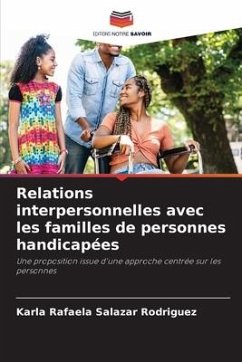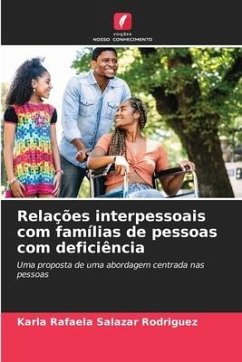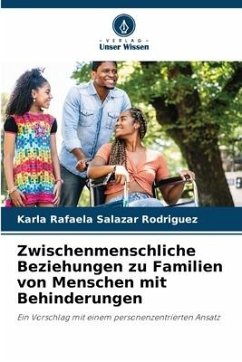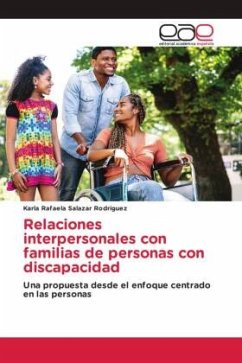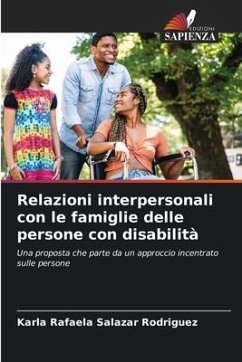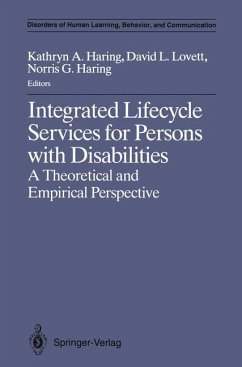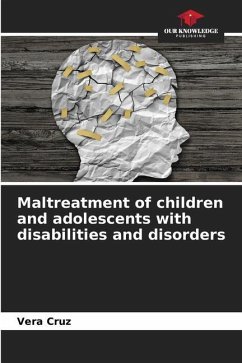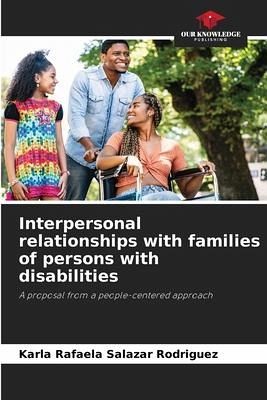
Interpersonal relationships with families of persons with disabilities
A proposal from a people-centered approach
Versandkostenfrei!
Versandfertig in 6-10 Tagen
53,99 €
inkl. MwSt.

PAYBACK Punkte
27 °P sammeln!
The birth of a son or daughter usually involves a series of mixed feelings: on the one hand, there is the excitement of meeting this being who has been in the womb for approximately nine months and finally holding him or her in our arms; and on the other hand, there is the fear that arises from the new responsibility that falls upon us.However, the birth of a child with a disability is immediately perceived by parents as an extraordinary and unexpected event.But have we ever asked ourselves whether disability affects all members of a family equally, or should the influence of the disease on th...
The birth of a son or daughter usually involves a series of mixed feelings: on the one hand, there is the excitement of meeting this being who has been in the womb for approximately nine months and finally holding him or her in our arms; and on the other hand, there is the fear that arises from the new responsibility that falls upon us.However, the birth of a child with a disability is immediately perceived by parents as an extraordinary and unexpected event.But have we ever asked ourselves whether disability affects all members of a family equally, or should the influence of the disease on the primary caregiver or on the whole family structure be given equal importance? Currently, interpersonal relationships in the family play a fundamental role in the healthy and responsible upbringing of children. My proposal is to be able to give tools to have interpersonal relationships in families with children with disabilities, from a person-centered approach, especially in the attitudes that can be strengthened to enrich these interpersonal relationships in the family with children with disabilities.





